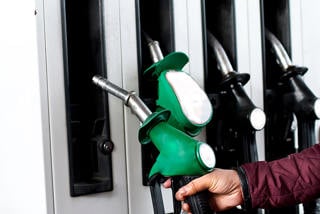The current economic climate demands that SMEs have the strategies, tools and insights they need to better manage costs, particularly when it comes to fleet operations.
A recent economic report from CYBG detailed the pressures that befall UK SMEs - rising costs and slowing revenues being the two main drivers.
Cost saving is therefore a strategic pillar that is gaining increasing focus for SMEs, particularly for those that rely on a fleet of vehicles to carry out fundamental operations.
The first half of last year alone saw the total vehicle operating costs for fleet vehicles increase by 2.5%.
By far, the largest contributor to these costs was fuel, ranging from 17.6% for 7.5 tonne vans to 31.7% for the largest vehicles.
So, what can SMEs do to reduce operational costs and protect their bottom lines from further erosion?
Use technology to spot fleet inefficiencies
Technology and data are is paving the way when it comes to driving greater business efficiencies.
From mileage to the number and frequency of fuel stops to maintenance logs, the data from fleet vehicles gives operators a wealth of information that can help them take steps to improve fuel efficiency.
However, in order to do this, they must have access to comprehensive Management Information (MI) to collect and analyse data effectively.
Optimise through telematics
By harnessing telematics, businesses access a more intricate level of vehicle data. For instance, fleet managers can better understand what routes are being taken by drivers; how efficient their driving is against fuel consumption; and how average speeds impact overall efficiencies.
This data gathering can prove useful in tailoring driver training programmes, which can be designed to improve driving techniques and behaviours across a company.
Access to this type of insight is easy for SMEs to gain access to, as fuel card providers often provide this as part of their services.
Stay on top of maintenance
The way a vehicle is maintained can have an enormous impact on fuel efficiency.
Dirty engines use more fuel, while tyres that are worn or are at an incorrect pressure can negatively affect how quickly the car accelerates, forcing the motor to work harder.
Poor application of maintenance techniques can also lead to huge cost implications, particularly with maintenance costs currently on an upward trajectory.
Implementing effective maintenance procedures can identify underperforming vehicles early on, ensuring that repairs can be carried out to negate the impact on costs.
Maximise convenience for fleet managers
Utilising a fuel card typically enables businesses to better monitor fuel usage and provides a convenient payment solution when purchasing fuel.
However, ensuring that businesses run as efficiently as possible means saving the most precious commodity that we have: time.
Opting for a fuel card that saves on administration time can give SMEs the chance to take a more strategic role in running, growing and future-proofing their business.
By following these simple steps, SMEs can bring greater efficiency to the fleet vehicles they use and drive greater cost efficiencies for their organisation in today’s uncertain times.
By Thore Vestergaard, senior vice president and managing director of Commercial Cards at FLEETCOR



















Login to comment
Comments
No comments have been made yet.